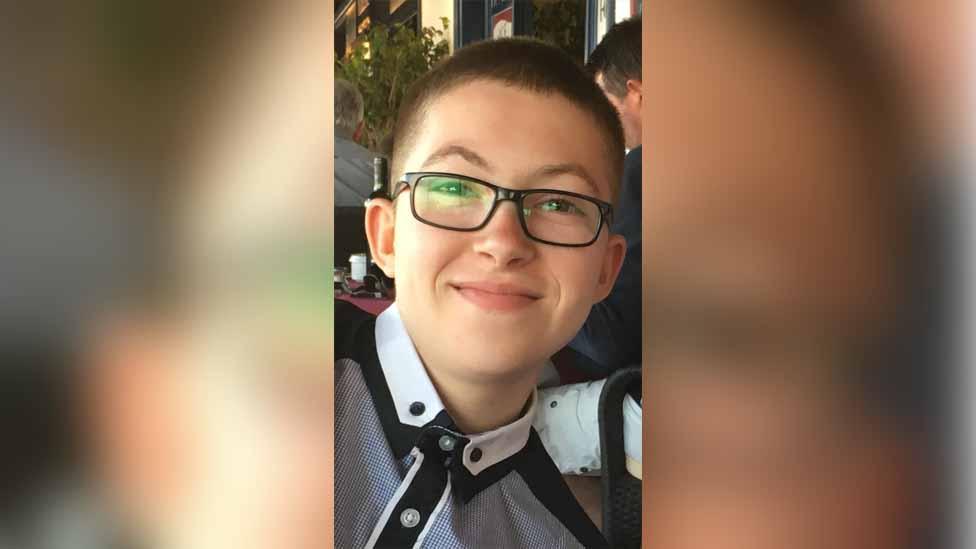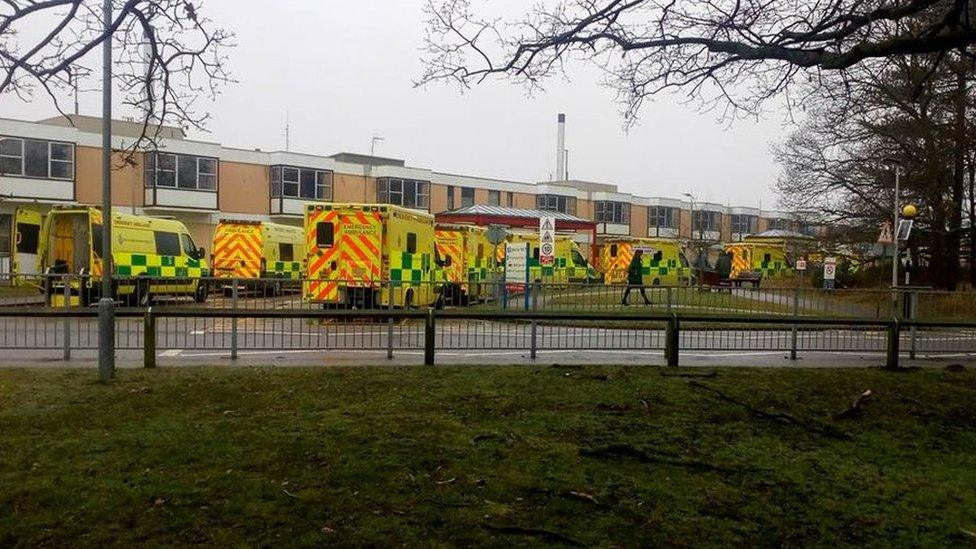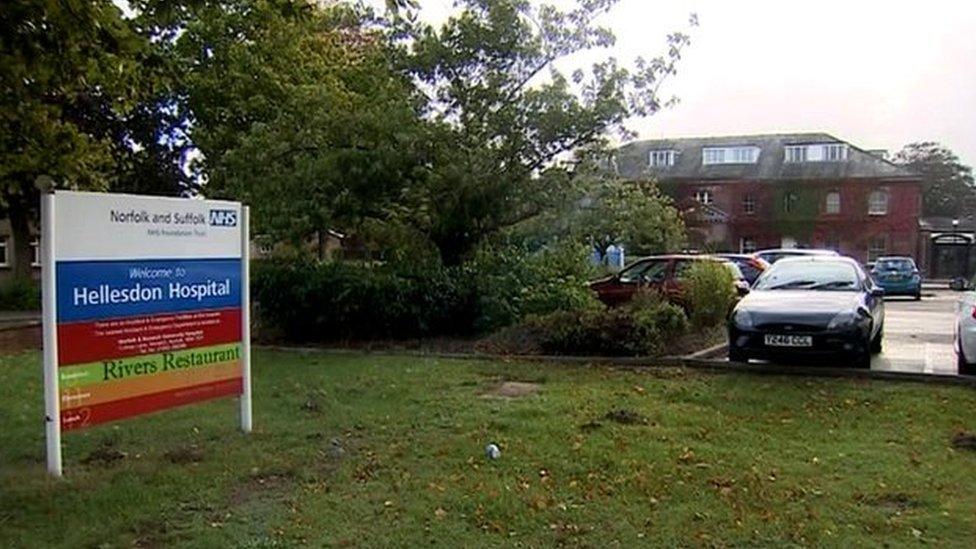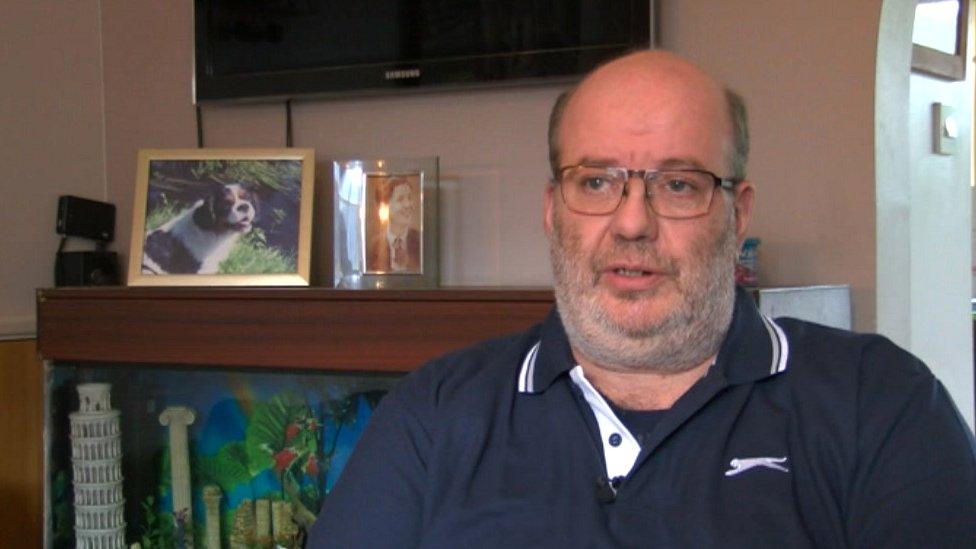Tyla Cook death: Norfolk and Suffolk NHS trust criticised
- Published

Tyla Cook "disliked" being a girl and adopted male pronouns in the months before he died
A coroner has criticised mental health services after failures in the lead-up to an autistic boy's death.
Tyla Cook, 16, died in November 2017, six days after being admitted to hospital in King's Lynn, Norfolk.
Coroner Jacqueline Lake said a meeting between health trusts to discuss the lessons learned had yet to take place, nearly two years after his death.
She concluded Tyla, who had depression and anxiety, died from natural causes, contributed to by a drug overdose.
The inquest had previously heard that Tyla had "disliked" being a girl and adopted male pronouns in the months before his death.
Ms Lake made no finding about whether Tyla, of Wretton, near Downham Market, Norfolk, intended to take his own life.
She will write Prevention of Future Deaths reports raising concerns in three areas, after a five-day inquest in Norwich.
Norfolk and Suffolk Foundation Trust (NSFT), which was treating Tyla for anxiety and an eating disorder, did not have a written care and crisis plan in place for him, she said.
It had only been agreed verbally and the coroner said: "I didn't get the impression... that the importance of having a care plan in place was recognised."

Tyla died at the Queen Elizabeth Hospital in King's Lynn
Ms Lake also raised concerns over an 11-week wait between Tyla's referral and his first appointment with the NSFT's eating disorder services.
She also criticised Queen Elizabeth Hospital, Norfolk County Council, and NSFT for not having discussed Tyla's treatment together, but acknowledged the East of England Ambulance Service had made inquiries.
"I'm concerned that this could slip by the wayside," she said.
'Working on improvements'
Tyla's mother, Stacey Drake, had previously said she believed her son "would still be alive" if NSFT had acted differently.
He was taken to hospital against his will on 9 November after telling NSFT staff he had taken an overdose, but endured a two-hour delay in being admitted.
He was eventually treated more than five hours after telling staff he had taken an overdose, and was put into an induced coma.
He died on 15 November after suffering a cardiac arrest.
NSFT medical director Bohdan Solomka said improvements had been made, such as involving families and carers more, and extra staff had been recruited to monitor care plans.
It was also working to improve access to eating disorder services.
The Queen Elizabeth Hospital said it had already taken action and would "be taking on board" the coroner's comments.
- Published12 September 2019

- Published10 September 2019

- Published9 July 2019

- Published28 June 2019

- Published22 February 2019
